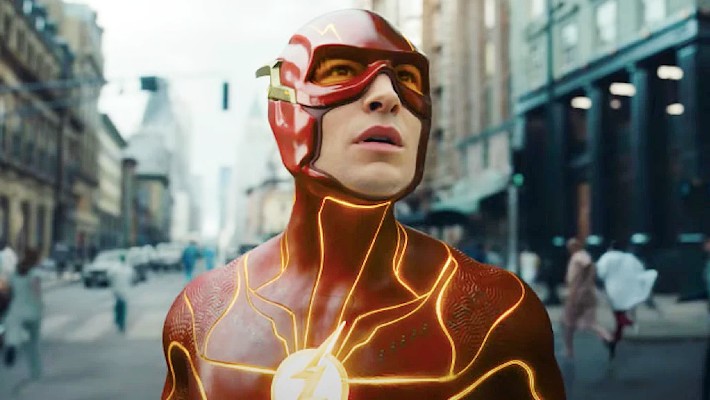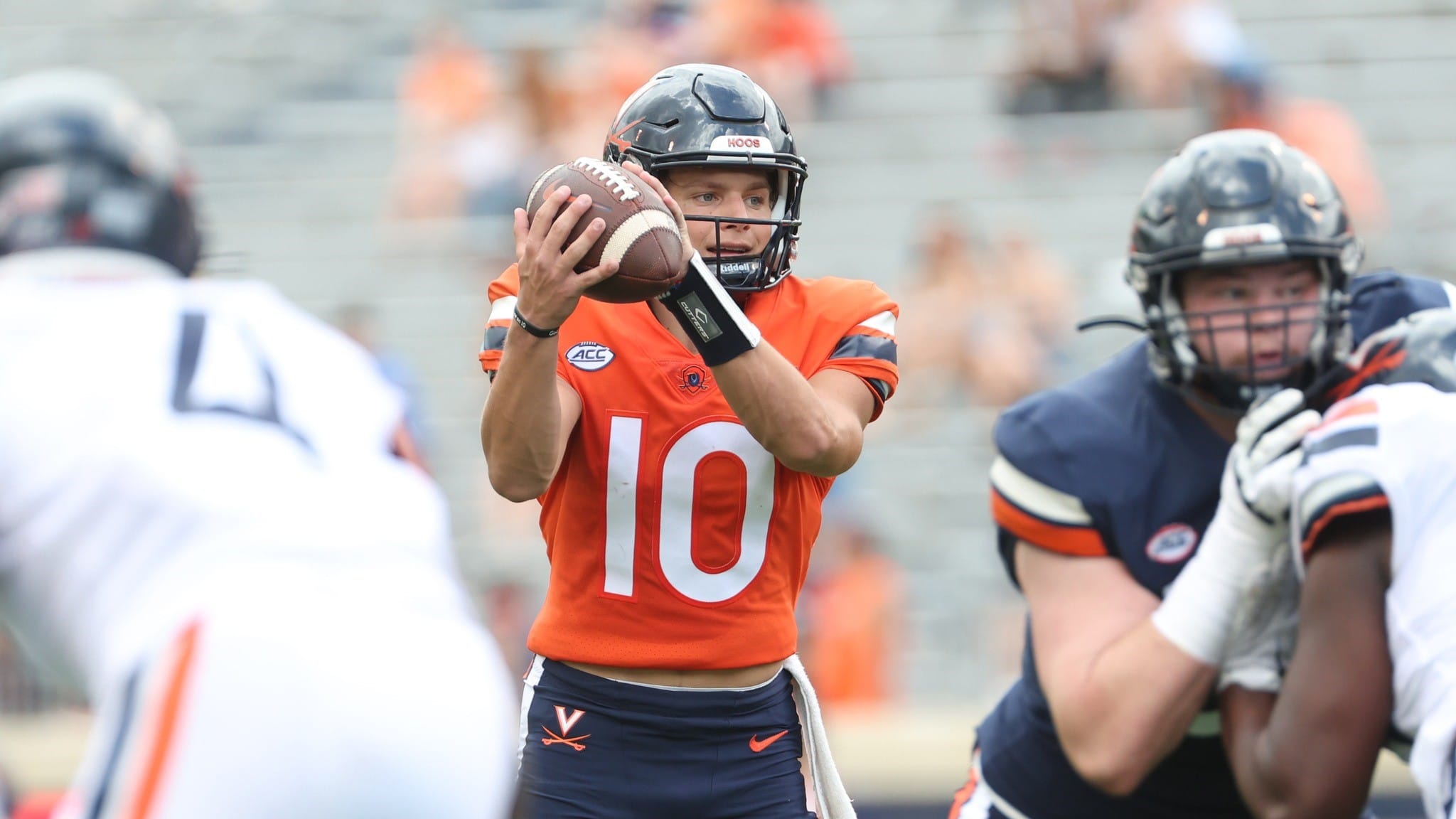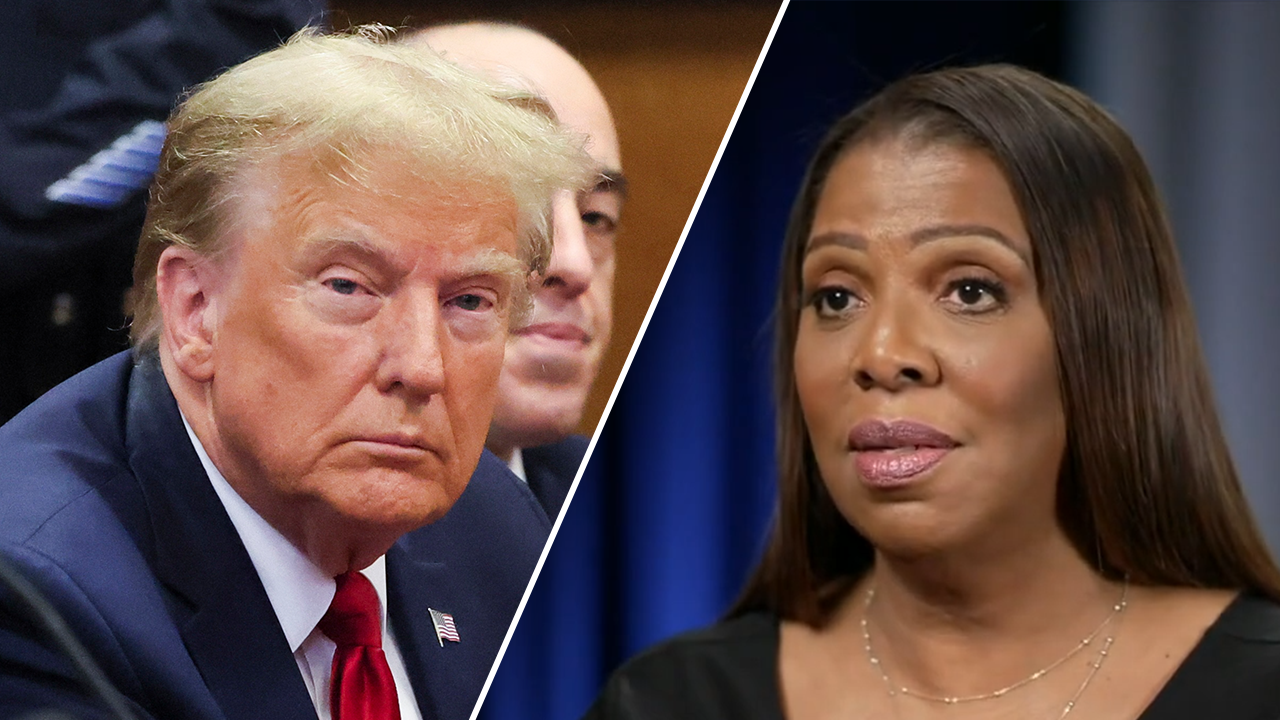Movie Reviews
THE FLASH Reviews Are In And It Definitely Doesn’t Sound Like The Best Superhero Movie Ever Made
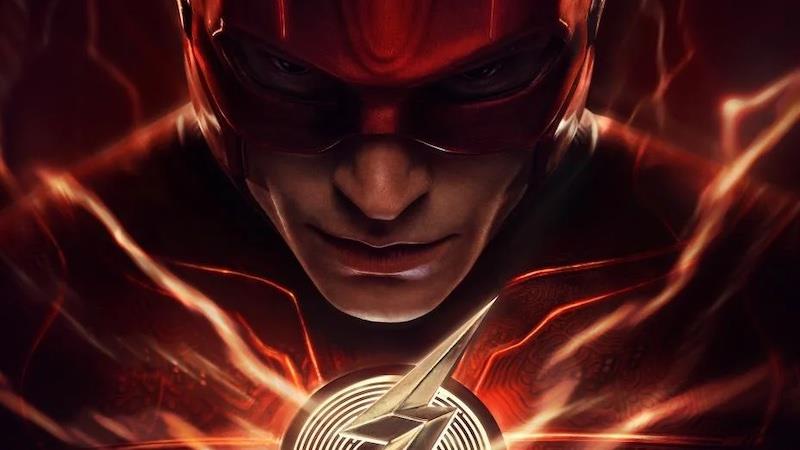
Earlier this year, DC Studios boss James Gunn called The Flash “one of the best superhero movies I’ve ever seen.” Warner Bros. CEO David Zaslav later added to that by saying it’s “the best superhero movie I’ve ever seen,” while celebrities like Tom Cruise and Stephen King have also given it the thumbs up.
Alas, the first reviews are telling a very different story.
While these verdicts are by no means as bad as those for Black Adam, the movie is receiving reviews primarily in the 3* range and below. Fan sites certainly seem to have appreciated it more (suggesting there could be a divide between fans and critics) but social media reactions had many believing The Flash would receive the same sort of universal praise as Spider-Man: Across the Spider-Verse.
We’ve compiled reviews from a wide range of sources below, but the overall consensus seems to be it’s a good, not great, DCEU movie (calling it the best of those feels like faint praise) which struggles to do Barry Allen justice. It’s worth noting that the special effects sound hit-and-miss, as does the time-travel story. There are also those who had an understandably hard time looking past the accusations surrounding Ezra Miller.
On the plus side, these verdicts suggest there’s fun to be had and heaps of fan service. Despite that, the widely discussed “secret ending” is coming under fire and may not land as expected.
Read through some of the reviews below and check back here soon for our verdict.
The thing is, none of it makes a lot of sense. In ‘The Flash,’ the multiverse of possibilities that opens up by toying with the past becomes an excuse to throw everything but the Batcave sink at the audience. Despite the vividness of Ezra Miller, the movie steamrolls Miller’s personality as it goes along. – Variety
The early word on The Flash calling it one of the greatest superhero movies ever made was pure hyperbole. But in the bumpy recent history of the DC Extended Universe, it’s certainly an above-average entry. – The Hollywood Reporter
What it amounts to is a movie that spends all its time racing from one poorly-thought out story element to another, from one only modestly satisfying nostalgia shout-out to another, and with only questionable results. How fitting, yet how disappointing: ‘The Flash’ has the runs. – The Wrap
It has taken so long for a feature-length ‘The Flash’ to finally hit theaters, and he’s too late. Barry is barely the lead character of his own movie. [C] – The Playlist
What’s less persuasive is the CGI, an eyesore that’s particularly gaudy when the finale’s ‘secrets’ drop. The tone is similarly choppy, especially in a climactic punchline that clashes with the film’s emotive developments. With just Aquaman’s return incoming, the result is a movie that suggests this DCEU had promise, even if its directors couldn’t quite focus it. Time to pass the baton… [3/5] – Total Film
In its best moments, ‘The Flash’ touches on something new and exciting, but too often, its the past that tugs on, keeping it from speeding ahead. [B-] – IndieWire
[This] is not a movie with any new ideas or dramatic rethinking, and – at the risk of re-opening the DC/Marvel sectarian wound – nothing to compare with the much-lauded animation experiment in the recent Spider-Man films. The intellect in this intellectual property is draining away. [2/5] – The Guardian
The Flash ends on a purposefully open note (and a pretty good joke), so that if the film succeeds at the box office, Miller’s Barry can run again another day. If it doesn’t, the precedent is set for a full continuity reset. Whatever DC movies await us in the future, let’s hope they avoid multiverses. It’s well-trod territory at this point, even for a speedster. [C+] – Entertainment Weekly
While I have a few complaints and there are a couple of head-scratching loose ends, “The Flash” is still a funny, emotional, action-heavy crowd-pleaser that ranks among the best DC movies ever made. [7.5/10] – Slash Film
Whether or not this was all worth the long development saga and the troubles with its star will, of course, be for individual fans to decide, but there is undeniable entertainment value in The Flash. It’s sometimes buried under layers and layers of storytelling knots that the film never fully untangles, but the fun is there, and when the film is really working, that turns out to be enough. – The AV Club
The Flash may have an unwieldy third act and indulges in too much unearned fan service, but that doesn’t stop it from being an entertaining and earnest DC superhero film. [7/10] – IGN
[If] a film can give you things that are exciting and heartfelt, all while you laugh and smile along, that’s hard to beat. And The Flash is definitely hard to beat in the conversation of the best DC movies of this era. – Gizmodo
[They] never consider that the time travel aspects make absolutely no sense, and only hurts the larger story in the way that it’s handled here. Thankfully, those antics are enjoyable and hard not to get excited about, but unfortunately, this isn’t a story that holds together on a narrative level. Cameos and fan service are fine to have, but the story has to be there to back them up, and it’s not quite there with The Flash. [C+] – Collider

Movie Reviews
Do Aur Do Pyaar Movie Review: A poignant meditation on love and marriage

Love is usually explored in popular culture with whatever happened leading up to it. It is seen as a trophy, as the means to cleanse you of suffering. That way, there is a burden of fantasy attached to it; love seems to offer a resolution. However, through all of this, it is not given any expiry date. If there is a tangible moment in time when two people define their feelings for each other as extraordinary, then when does it cease to be that way? Who breaks the bubble of the ‘happily ever after’? Do Aur Do Pyaar lingers on such questions, and delves deeper into flawed individuals, beyond the often-projected perfect exteriors. The film is not interested in looking at smiling family portraits but the marks that they leave behind on empty walls.
Director: Shirsha Guha Thakurta
Cast: Vidya Balan, Pratik Gandhi, Ileana D’Cruz, Sendhil Ramamurthy
It features Anirudh (Pratik Gandhi) and Kavya (Vidya Balan) as a couple who have been married for 12 years. Coming from different parts of the country, they had to elope in order to get married. Now, after all those years, the dreams woven together by young hearts have begun to fizzle. Love is ultimately not enough, it seems. For them it stays hidden, often crawling up on the bed in the space between the two or making its absence known through eyes that lack any spark when they meet. Hence, both of them seek companions outside their marriage in order to fill the emptiness in their hearts. Anirudh has been seeing Nora (Ileana D’Cruz) for two years and finds comfort in her presence. Similarly, Kavya latches on to photographer Vikram (Sendhil Ramamurthy) as they make plans to live together at a sea facing flat in Mumbai. The exciting rhythm of these new-found romances is broken when Kavya’s grandfather dies and she has to visit her native place, Ooty. To her surprise, Anirudh decides to tag along.
Movie Reviews
'Do Aur Do Pyaar' movie review: Feel good movie about complex marriages
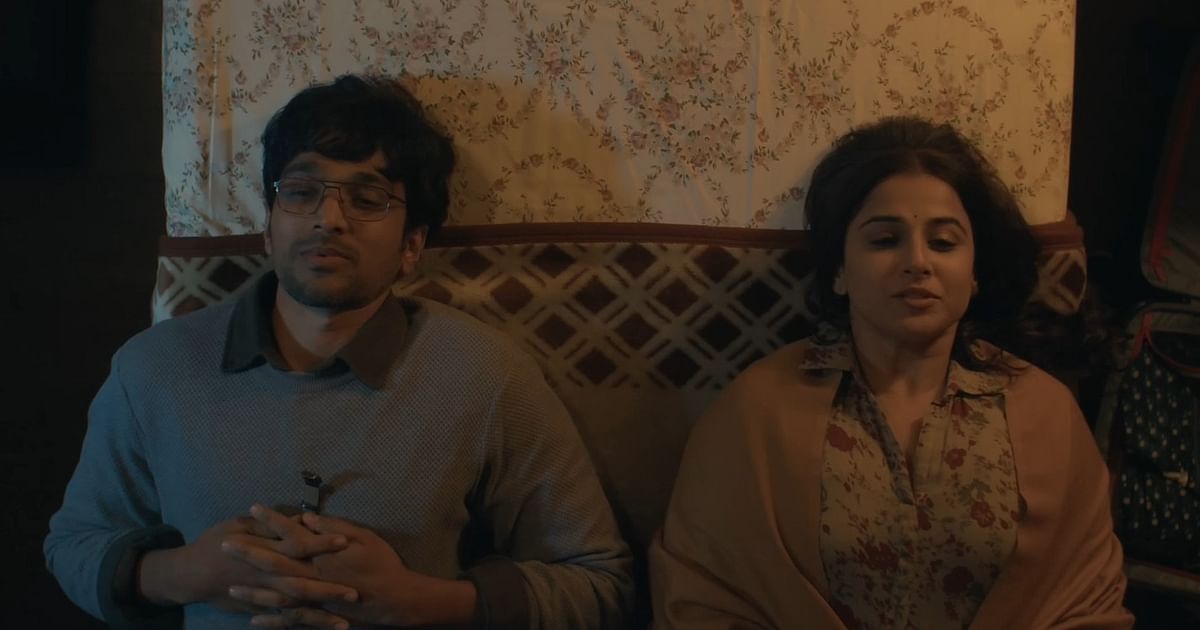
Debutante filmmaker Shirsha Guha Thakurta’s ‘Do Aur Do Pyaar’ is a modern take on love, marriage, and everything that surrounds it. The comedy-drama follows Anirudh (Pratik Gandhi) and Kavya (Vidya Balan) who are stuck in a loveless marriage. The working professionals have both created separate lives for themselves and their conversations stay limited to the mundane details of life. They rarely have deep conversations.
The film explores infidelity. Both the characters, married for over 10 years, are in love with other people. Kavya is in love with Vikram (Sendhil Ramamurthy), a photographer. Anirudh is in love with Nora (Ileana D’cruz), a struggling actress.
The film sees the characters find the love they still have for each other.
The storytelling is perfectly paired with music by ‘The Local Train’, Lucky Ali, and other artistes. The actors do a good job of bringing life to their characters. Their thoughts and feelings are not dependent on dialogues but are conveyed through their body language and through their silences.
Overall, the movie surely makes you laugh. But more importantly, it shows the institution of marriage in a new light and highlights the complexity of modern relationships.
(Published 20 April 2024, 00:47 IST)
Movie Reviews
Civil War | Review

Alex Garland’s Civil War depicts a fictional US conflict that is less about conveying a political perspective as it is a tense statement about the normalization of violence and collectively losing sight of the bigger picture.
Poignancy in film is sometimes on purpose, sometimes just coincidence. Civil War is a bit of both. Here is a film that recognizes the diplomatic atmosphere being as strained as it has been in a very long time, but also comes to theaters exactly at the right time when those conflicts are heightened to a worryingly improbable end. Civil War may depict a fictional conflict in the United States, but it’s message speaks to the global increase of violence in our lives driven by the splintering of society towards radical perspectives – in specific those who act upon them and those who pretend they aren’t a threat.
Those exact perspectives aren’t clearly defined in Civil War, which is a detriment to those viewers who are hoping the film will champion their own specific views. Instead, director Alex Garland makes the choice to not explicitly detail the cause of his fictional civil war, but instead realize the greater implications of that conflict on the general population. It recognizes the general opportunity of how things could get out of control here in the US, as if to demonstrate that the systems of our precious constitution are just as susceptible to abuse as anywhere else in the world.
Civil War
Directed By: Alex Garland
Written By: Alex Garland
Starring: Kristen Dunst, Wagner Moura, Cailee Spaeny, Stephen McKinley-HendersonRelease Date: April 12, 2024
By not providing a concrete reason for the conflict, Garland’s film suggests the flaws of humanity make it inevitable. He reinforces this theme by peppering in accounts of people who are pretending the war isn’t happening, as if to suggest their ambivalence played a role. The film contrasts the experiences of those people with their heads buried in the sand by spinning a narrative around those who are paid not to: war correspondents.
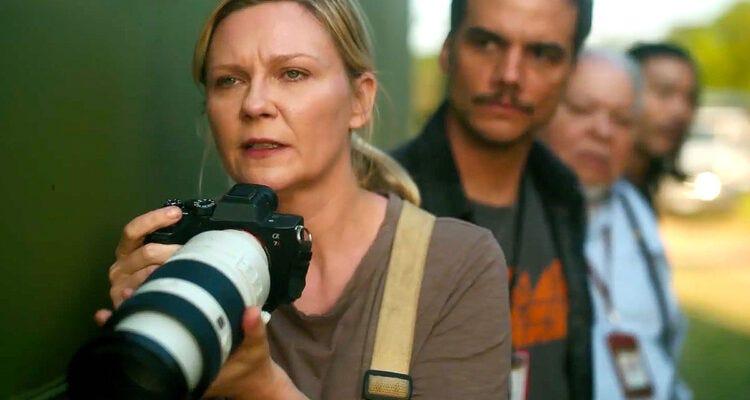
The story focuses on a renowned journalist Lee Smith (Kristen Dunst) who has made a name for herself covering harrowing atrocities across the globe, and her colleague Joel (Wagner Moura) who lives for the thrill of experiencing the thrill of battle in person. As the civil war is upon the precipice of conclusion, they decide to race to Washington D.C. to try and interview the President of the United states before he is captured by his opposition. In this journey they are joined by Sammy, a veteran reporter who would rather die than stop working (Stephen McKinley-Henderson), and Jessie (Cailee Spaeny), a young and inexperienced photographer who looks up to Lee.
Lee and Joel are an experienced 2-man crew who have been together through some very dangerous conflicts depicted to the audience through flashbacks. Sammy and Jessie’s involvement thus represents a hazard because they don’t just have to worry about themselves, they have to look out for two people who don’t have the same capabilities as they do. But while Sammy is willingly putting himself in danger and has the wherewithal to know exactly what he is getting himself into, Jessie does not. Joel and Lee’s opposing perspectives on the approach to their work is something that makes their working relationship function, but it creates conflict in regards to Jessie.
Lee is reluctant to bring Jessie in under her belt and show her the ropes because she has seen the worst of humanity and fears Jessie isn’t prepared for it both emotionally and physically. Lee doesn’t want to have to care about someone else because it may compromise her ability to do her own work. Meanwhile Joel is excited to be able to share his enthusiasm for being in the thick of the battle and wants to help Jessie experience this for the first time. For her part Jessie realizes the uncomfortable burden her presence places on the group, but knows that if she wants to further her career this is a golden opportunity she would never get if she played it safe.
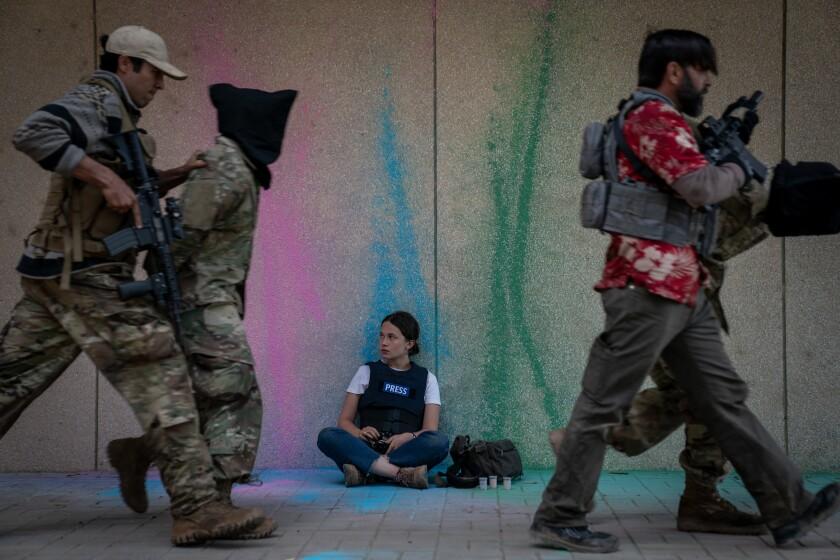
In this way, all of them essentially exploit the pain and suffering of others for their living. This experience has essentially numbed them to the motivations of the conflict, which is part of the reason why the film doesn’t spend time commenting on them. Furthermore, it isn’t really possible for Lee & Company to be on one side or the other because the integrity of their craft and personal safety requires them to be ambivalent. In many ways they hide behind it like a shield. While they can’t ignore the conflict, their reasoning to not be on one side or the other is just as selfish as those who are ignoring the conflict.
You could construe this as a criticism of the media, which I think may be valid. But I think the point is the fact that our society is at a point where “sides” are necessary in the first place. This is a bigger criticism of the world’s social development as a whole. Rather than be motivated by the greater good, we’re motivated by selfish desires and we channel that into picking “sides”. At one point in the film, the main characters encounter a man with a gun who has captured and tortured two men because they were stealing from him. He comments on how he had gone to high school with one of them, suggesting the extremes that have become necessary – even in a civilized first-world nation – for individual survival.
Director/writer Garland first made a name for himself in cinema by reinventing the zombie genre for the 21st Century with his script for 28 Days Later. In many ways, Civil War feels like a zombie movie. The world it depicts has fleeting reminders of normalcy amidst a harrowing almost post-apocalyptic fight for survival. There are gripping action sequences with sound design that pummels you into the back of your seat. And yet most of the film is quiet, expressing the void of humanity from this possible future. Garland depicts empty streets with the occasional roving military vehicle, others are littered with the carcasses of cars and equipment abandoned long ago. Like a zombie movie it hinges on humanity’s hubris – despite all our impressive accomplishments we’re still a deeply flawed species.
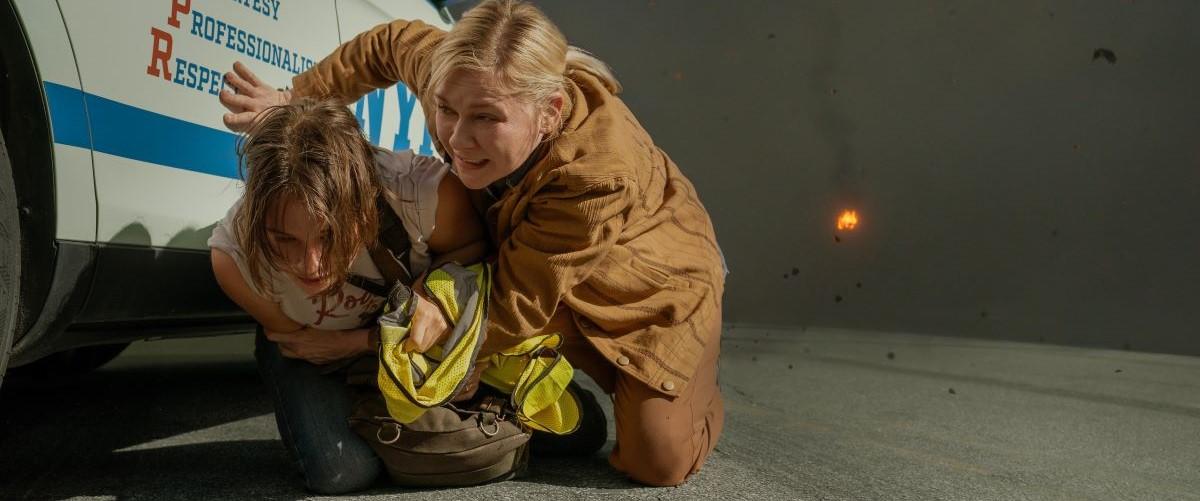
Kristen Dunst portrays Lee the entire film with the aghast expression of someone who has seen too much. But Jessie’s inclusion in her life is what ultimately breaks her. Not because she witnesses her loss of innocence first-hand, but because Lee sees herself in Jessie. From this outside perspective Lee begins to feel the guilt that she had hid away for all these years. Reporting on these terrible events doesn’t necessarily bring heightened concern from the general public, instead it fuels our tolerance for them.
Civil War offers us the ultimate paradox of our modern information age; the more we know about what is going on, the worse off we are. Truth becomes the enemy not because of what it means to us, but because of our selfish reactions towards it. The film conveys a pulse-quickening tale of survival in a harrowing dystopia of fear towards knowledge. It flies in the face of every horror film where we’re told that the most frightening thing is the unknown.
-
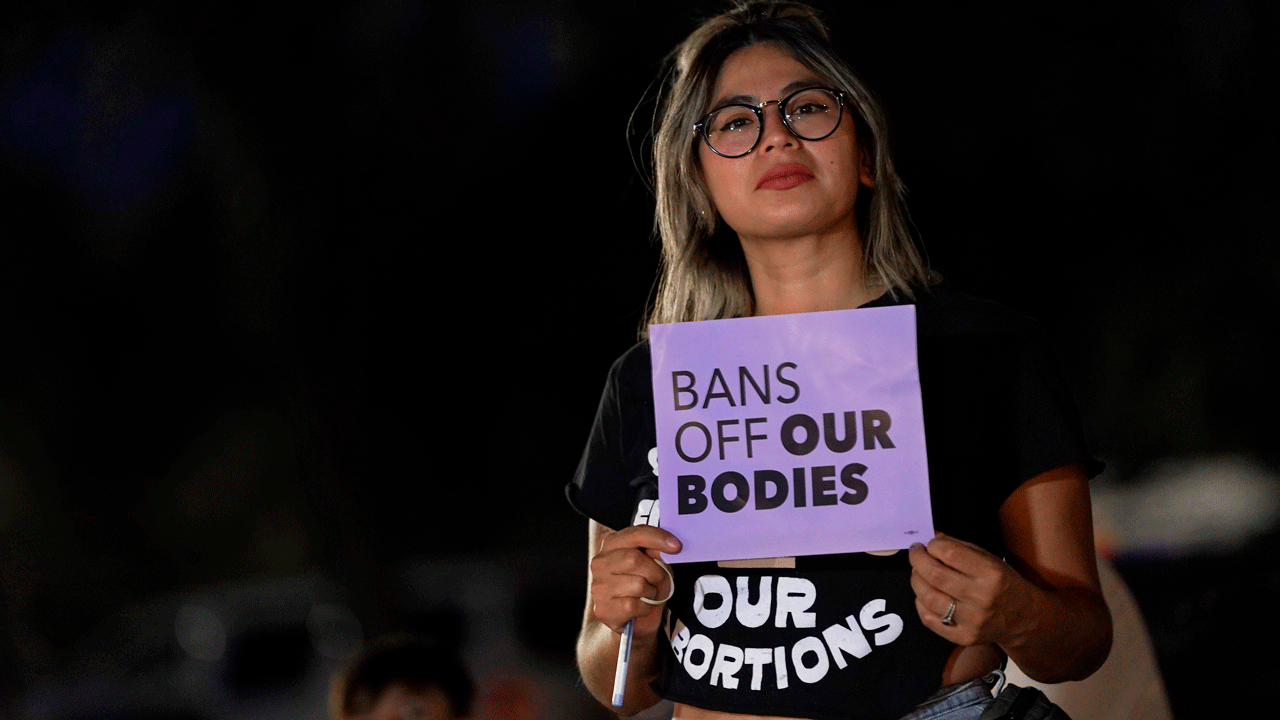
 Politics1 week ago
Politics1 week agoWhat to know about the Arizona Supreme Court's reinstatement of an 1864 near-total abortion ban
-
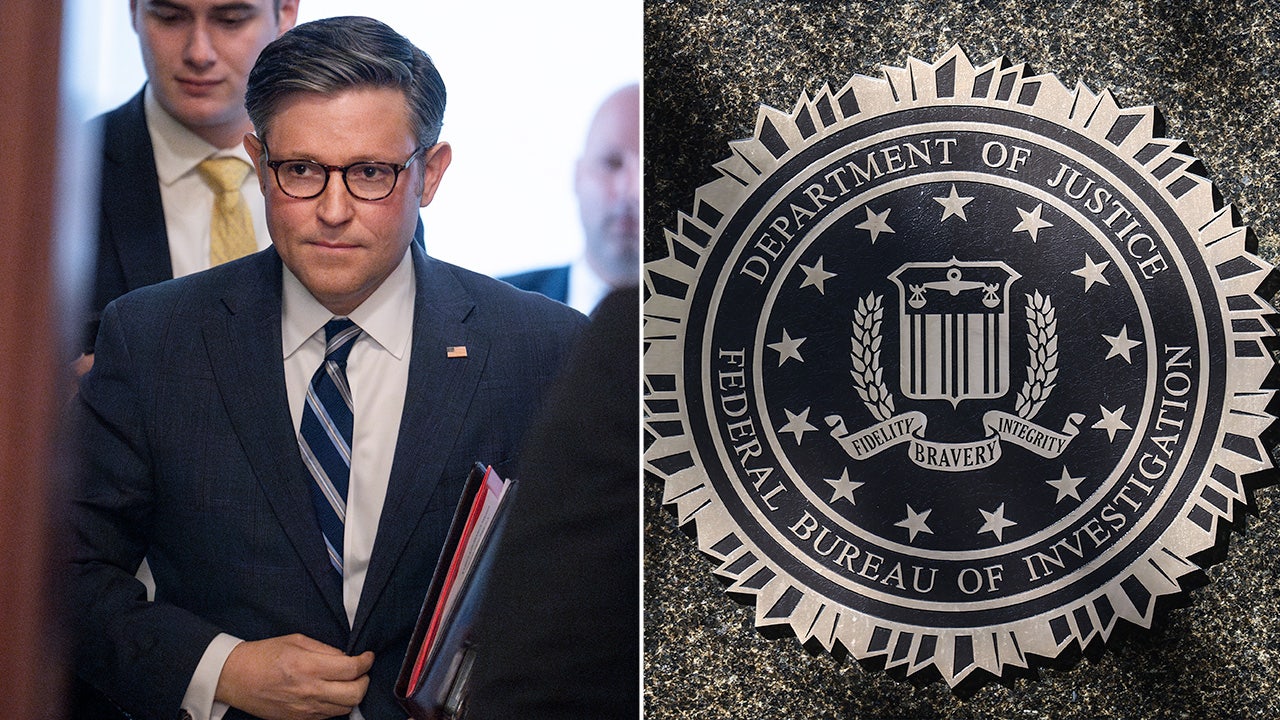
 Politics1 week ago
Politics1 week agoHouse Republicans blast 'cry wolf' conservatives who tanked FISA renewal bill
-

 News1 week ago
News1 week agoVideo: Biden Hosts Japan’s Prime Minister at the White House
-

 World1 week ago
World1 week agoRomania bans gambling in small towns
-
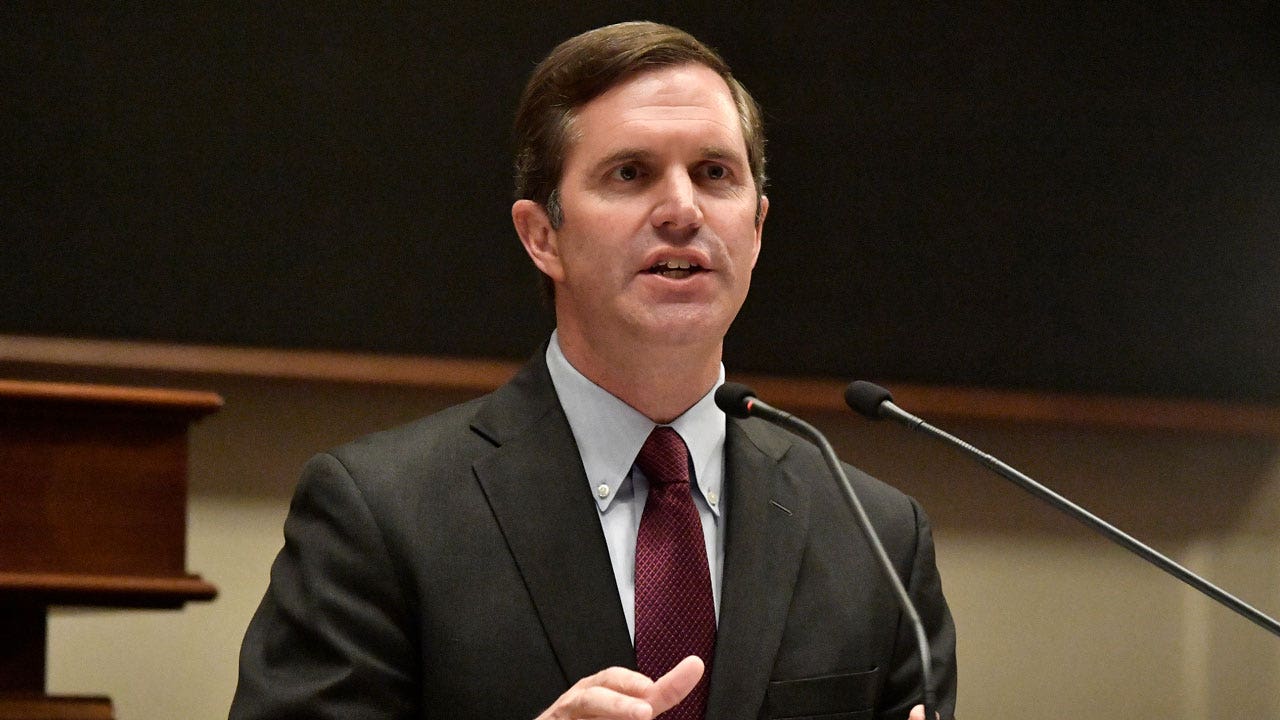
 Politics1 week ago
Politics1 week agoKentucky governor vetoes sweeping criminal justice bill, says it would hike incarceration costs
-
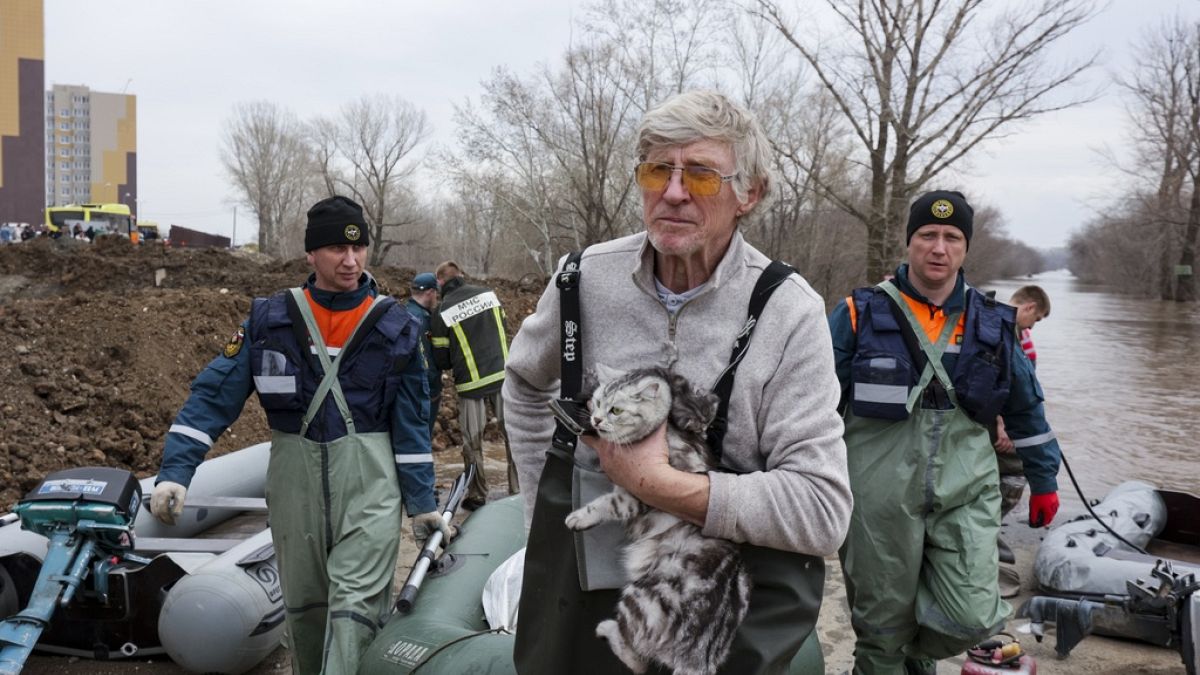
 World1 week ago
World1 week ago'Very tense' situation as floods in Russia see thousands evacuated
-

 News1 week ago
News1 week agoArizona says century-old abortion ban can be enforced; EPA limits 'forever chemicals'
-

 World1 week ago
World1 week agoBiden, Japan leader Kishida announce stronger defence ties in state visit
